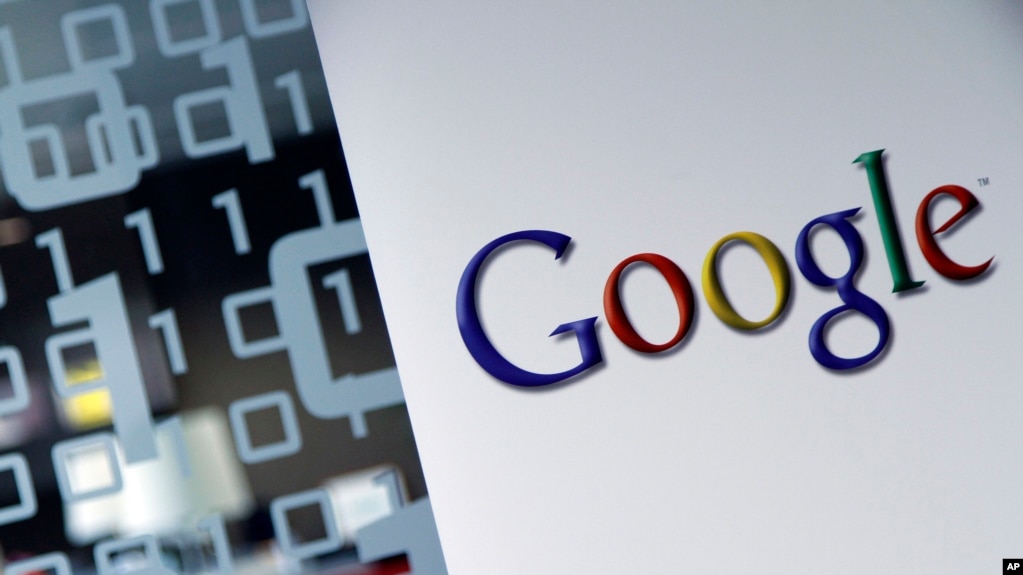US Sues Google over Digital Advertising Control

The Justice Department and eight states opened a legal action, or lawsuit, against Google on Tuesday. They accuse the technology company of abusing its influence in its online advertising operation.
The lawsuit argues that Google’s power has been hurtful to advertisers, consumers and even the U.S. government.
The government said that Google is looking to “neutralize or eliminate” competitors in the online advertisement marketplace. The suit claims that Google is forcing advertisers to use its products by making it difficult to use competitors’ offerings.
“Monopolies threaten the free and fair markets upon which our economy is based,” Attorney General Merrick Garland said to reporters Tuesday.
For 15 years, Garland said, Google has slowed the rise of other technologies and changed how online ads operate. He said the business’s operational methods force advertisers and publishers to use its tools.
Google’s ad manager lets publishers with large sales manage their advertisements. The ad exchange is a marketplace to buy and sell online display ads.
Garland said Google controls the technology used by most major websites to offer advertising space for sale. It also controls the largest ad exchange that connects publishers and advertisers when ad space is sold. The result, he said, is that “website creators earn less and advertisers pay more.”
The lawsuit demands that Google stop operating businesses that manage the buying and selling of digital display advertising.
Alphabet, Google’s owner, released a statement about the legal action. It said the government is presenting a mistaken “argument that would slow innovation, raise advertising fees, and make it harder for thousands of small businesses and publishers to grow.” Digital ads currently make up about 80 percent of Google’s revenue.
Tuesday's lawsuit comes as the U.S. government is increasingly looking to slow Big Tech's growth. But such legal action can take years to complete. Congress has not passed any recent legislation seeking to limit the power of large tech companies.

Attorney General Merrick Garland, joined by Associate Attorney General Vanita Gupta and Assistant Attorney General Jonathan Kanter of the Justice Department's Antitrust Division. (AP Photo/Carolyn Kaster)
Matt Schruers is president of the Computer & Communications Industry Association, of which Google is a member. He said there is strong competition for advertising. The lawsuit “defies reason” on that point, he added.
Dina Srinivasan is an adtech expert with Yale University. She said the lawsuit is “huge” because it involves both state and federal governments against Google. In December 2020, 16 states and Puerto Rico sued Google over the same issues.
The current online ad market, Srinivasan said, “is broken and totally inefficient.”
She said this lawsuit seeks to bring to the digital ad market the same rules that apply to the financial markets. Stockbrokers, banks and other companies that can have competing interests are not permitted to own the New York Stock Exchange.
Google held nearly 29 percent of the U.S. digital advertising market in 2022, says research group Insider Intelligence. That includes all the ads people see on computers, phones, and other devices. Meta, which owns Facebook, is second, with nearly 20 percent of the market.
But that is not the lawsuit's concern. It centers on the technical market operations that Google controls, like the ad server it developed.
The U.S. government says Google has a more than 90 percent share of the business that serves ads to websites. It also says it controls about 80 percent of the Google Ads network where advertisers compete to place ads.
Words in This Story
consumer — n. a person who buys goods and services
eliminate — v. to remove
manage — v. to have control of
exchange — n. an occurrence in which people give things of similar value to each other
display— n. an arrangement of objects intended to decorate, advertise, entertain, or inform people about something
innovation — n. a new idea, device, or method
revenue — n. money that is made by or paid to a business or an organization
inefficient — adj. not capable of producing desired results without wasting materials, time, or energy
https://learningenglish.voanews.com/a/us-sues-google-over-digital-advertising-control/6933873.html